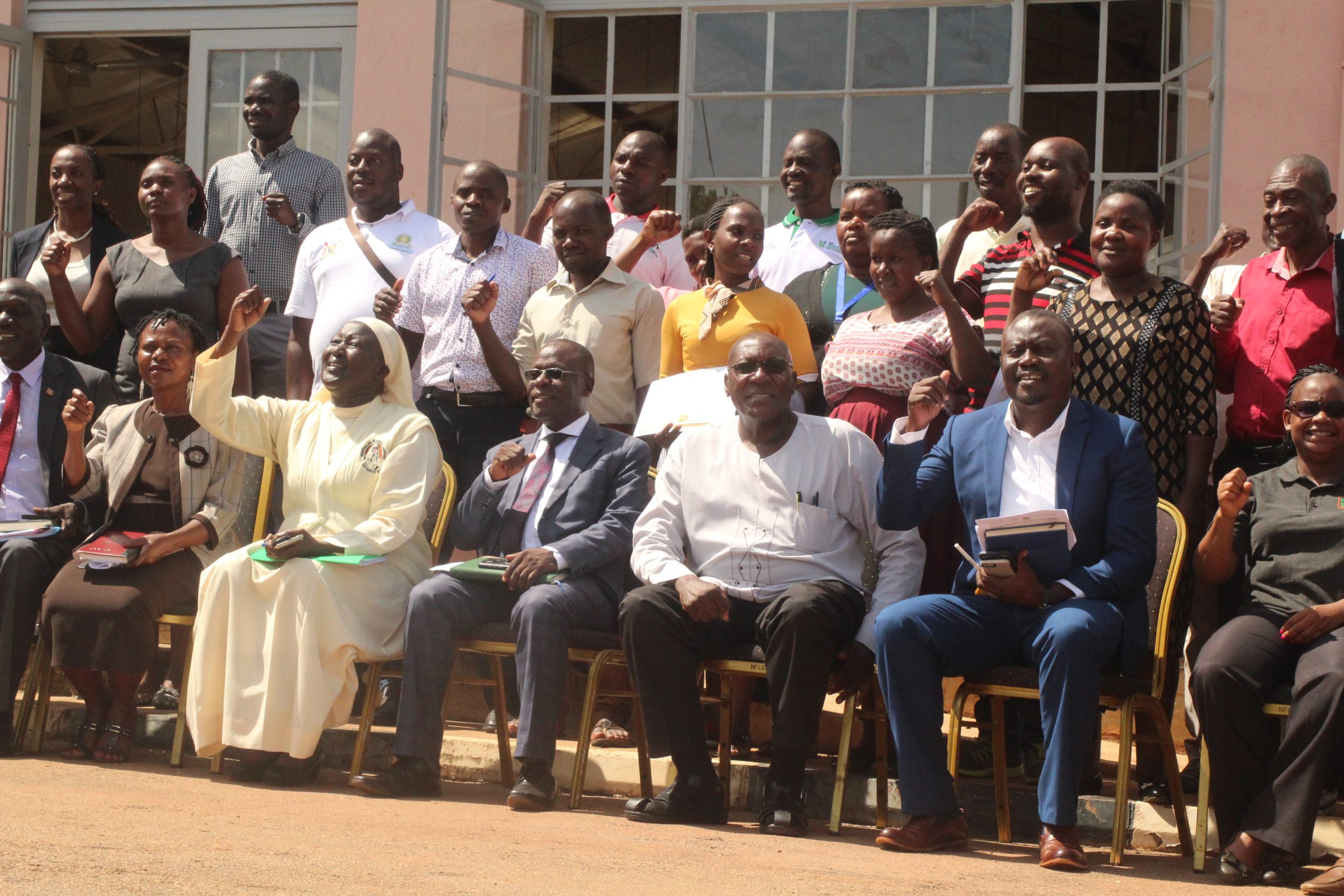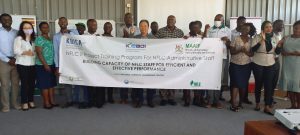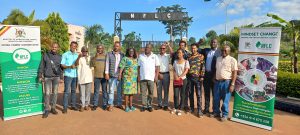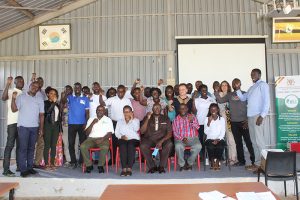Theme: Promoting Irrigation for Improved Agricultural Productivity Through Farmer Field Schools.
Remarks from Guest of Honour,
Sr. Akiror Mary Grace
The guest of honor recognized the members of the steering committee, the funders, the technical team from MAAF, the Principal and staff of NFLC, and the participants for coming.
- She commented that the participants were a lucky group, however, a lot of expected of them.
- She added that there should be no shortage of food in the country.
- She cautioned the participants that as they talk about transport, what are they doing within their means and thus urged them to utilize the available resources as the ministry works around to address the transport issue.
- She further emphasized that the market for products will also be addressed by MAAIF.
- She assured the congregation that the steering committee pledges its support.
- She argued with the participants that they are free to come back and learn.
Remarks from Ass. Commissioner Soil and Water Conservation, MAAIF
Dr. Kabango Fred,
- Thanked participants for honoring to come for the training.
- He noted that the ministry has received issues with the high percentage of co-funding, however, there is guidance on how lower it.
- He pledged that the ministry will work on markets with the Ministry of Trade and Industry.
- He highlighted that water is key in production and that MAAIF has two kinds of water supplies; bulky and supplied to smallholder farmers.
- He thanked the President of the Republic of Uganda and the World Bank for supporting the UGIFT initiative
- He requested the guest of honor to look into the wage bill issue
- He noted that generally, farmers do not want co-funding, and cited a solution where MAAIF engaged SACCOS in Masaka to help fund the farmers. Farmers borrow from SACCOs to pay for co-funding as we wait for an increase of co-finding through policy processes.
Remarks from the Deputy Chief Administrative Officer (CAO) of Masaka district,
Ms. Tinka Betty
- She noted that the success of UGIFT is with all the stakeholders
- She updated the congregation that Masaka has so far installed 11 irrigation systems and one demo
- She noted further that the district still has issues with the suppliers and thus advised that they need more control over the suppliers.
- She added that the district still has wage bill challenges
- And going forward; she advised that MAAIF should reduce the co-funding ratio
and also open up more markets.
Remarks from the Principal NFLC
Mr. Okwaja John Bosco
The Principal thanked the Steering Committee, World Bank, UGiFT, the technical from team MAAIF, NFLC staff, and the participants.
- The principal noted that this was the fourth co-hot for the Farmer Field Schools
- He also noted the Centre is contributing to the Uganda Vision 2040
- And to the surrounding community, transform the Muyira parish.
- He further noted that the Centre has hosted many trainers, however, there are still challenges in climate, counterfeit products, market, and extension workers lacking enough equipment.
- He, therefore, thanked implementing bodies and pledged that NFLC is ready to implement the second phase.
- With the challenge of co-funding, the Principal argued that farmers should engage in this activity.
- He further argued Ugandans to embrace irrigation to solve the challenges of food and income.
- He cautioned the pioneers to go back and implement whatever they have learned.
Remarks from the group leader,
Mr. Peter Vivian Acire,
Thanked everyone, appreciated the experienced trainers, and acknowledged that the participants had benefited a lot and that they pledge to implement whatever they have learned.
Thanked also MAAIF for the Microscale program and the Government of Uganda for the salary rise. However, he cautioned the participants that it comes with responsibility as foot soldiers.
- He highlighted the challenges of;
- Few staff with a ratio of 1:5000 farmers and thus requested MAAIF to reduce the ratio.
- The participants appreciated the support from the Government of Uganda, however, they added that more funds are needed to implement government programs.
- Logistics with difficulties in transportation and computers, and thus requested MAAIF to provide moto-cycles for extension workers.
- Low response by farmers to co-fund, however, he argued the foot-soldiers to do their part.





